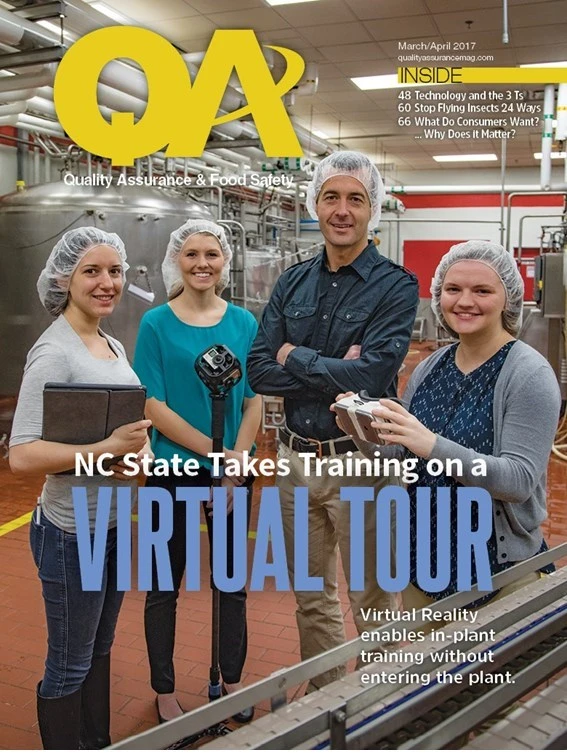
By Lisa Lupo
Even the most robust of traceability systems is beginning to face some competition from the emerging “non-system” blockchain platform. It is a simple, yet complex, platform of data currently used primarily for financial transactions (e.g., by banks) but beginning to penetrate general supply chains because of its ability to “talk” across businesses without requiring that all use the same system — something that the food industry has not previously had.
In simple terms, as explained by Bureau Veritas Vice President of Food Vincent Bourdil at the Global Food Safety Conference in March, blockchain is “a chain of blocks that traces transactions and assets.” The blocks are encrypted, carved, and timestamped by “miners,” and once incorporated in the chain, they cannot be changed or removed. Access to the data can then be specified on a person-to-person or business-to-business basis. The system doesn’t require that companies change the way they are doing things, but that a single step be added to put their data into the blockchain, Bourdil said.
But what is most likely to spur the roll-out of this new technology will be the results of a pilot test being conducted by Walmart. The test, conducted during the first quarter of 2017 to track produce in the U.S. and pork in China is one aspect of a collaboration between Walmart, IBM, and Tsinghua University in Beijing to improve the way food is tracked, transported and sold to consumers across China “by harnessing the power of blockchain technology designed to generate transparency and efficiency in supply chain record-keeping,” as stated by IBM.
By providing a permanent record of transactions which are then grouped in blocks that cannot be altered, blockchain could serve as an alternative to traditional paper tracking and manual inspection systems. Food products can be digitally tracked from farm to table through the digital connection of a food item to its farm origination details, batch number, factory and processing data, expiration date, storage temperature, shipping details, etc., with the information entered into the blockchain along every step of the process.
As explained by IBM, each piece of information provides critical data points that could potentially reveal food safety issues with the product. The information captured in each transaction is agreed upon by all members of the business network; once there is a consensus, it becomes a permanent record that can’t be altered. This helps assure that all information about the item is accurate.
If the pilot test proves to be a success and Walmart begins to require that all its suppliers implement blockchain, the technology is likely to become the way of the future, as has proven to be the way of the industry with other initiatives of this world’s largest retailer.
Blockchain enables end-to-end traceability and transparency by bringing a common technological language to the food chain, while enabling consumers to “see the full story” of their food on its label through their phones. It is the fact that it is blocks of data that can make blockchain so versatile and valuable to the food industry. Tracing one forward and one back is not terribly difficult, even when the businesses are using different systems. But when there is a need to trace a product through a complex supply chain from retail back to the farm — whether to trace an outbreak; to verify a product is kosher, organic or allergen-free; or simply for consumer transparency — a diversity of systems means that one must literally track one step at a time, from one “silo” of information to the next.
Thus, as stated by Greenfence Founder and CEO Mitchell Chait, “Even more than transparency, you need to have connectivity.” And because blockchain is simply a chain of data — not a software or a program, it does not become outdated.

Explore the April 2017 Issue
Check out more from this issue and find your next story to read.
Latest from Quality Assurance & Food Safety
- Chef Robotics Introduces Pat-Down Capability for Meal Presentation and Sealing
- USDA Launches Regenerative Pilot Program
- Indoor Ag-Con Adds Food Safety Track to Conference Lineup
- IDFA Recognizes Federal Officials for Support of U.S. Dairy Industry
- Tetra Pak Acquires Bioreactors.net
- Fresh Del Monte Receives Rabobank Leadership Award
- São Paulo Earns Guinness World Record for Largest Municipal Food Security Program
- KPM Analytics Releases Ready-to-Use NIR Calibration Packages





